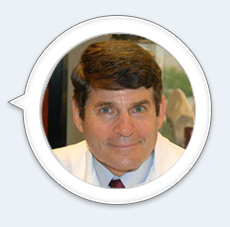EVAN R. GOLDFISCHER, M.D., MBA
UROLOGIST, DIRECTOR OF RESEARCH, UROLOGY DIVISION, PREMIER MEDICAL GROUP
EVAN R. GOLDFISCHER, M.D., MBA
UROLOGIST, DIRECTOR OF RESEARCH, UROLOGY DIVISION, PREMIER MEDICAL GROUP

Even Urologists Get KIDNEY STONES
An Essential Guide To Kidney Stone Treatment and Prevention
 If you really, truly do not want to experience this pain again, it is important that you review the guidelines and information in this book.
If you really, truly do not want to experience this pain again, it is important that you review the guidelines and information in this book.
Dr. Goldfischer has first-hand experience with kidney stones (he’s had two calcium-based stones), and he is able to apply personal experience, knowledge, and medical expertise to help kidney stone sufferers prevent future stones from occurring.

Even Urologists Get KIDNEY STONES
An Essential Guide To Kidney Stone Treatment and Prevention
 If you really, truly do not want to experience this pain again, it is important that you review the guidelines and information in this book.
If you really, truly do not want to experience this pain again, it is important that you review the guidelines and information in this book.
Dr. Goldfischer has first-hand experience with kidney stones (he’s had two calcium-based stones), and he is able to apply personal experience, knowledge, and medical expertise to help kidney stone sufferers prevent future stones from occurring.
 Dr. Evan R. Goldfischer is a board certified urologist, member of the Endourological Society and fellow of the American College of Surgeons. Dr. Goldfischer was the Director of Urology at Vassar Brothers Medical Center, where he served on the medical executive, and quality improvement committees. He is the founder and Chair of the Board of Premier Cares Foundation.
Dr. Evan R. Goldfischer is a board certified urologist, member of the Endourological Society and fellow of the American College of Surgeons. Dr. Goldfischer was the Director of Urology at Vassar Brothers Medical Center, where he served on the medical executive, and quality improvement committees. He is the founder and Chair of the Board of Premier Cares Foundation.
Dr. Goldfischer has published extensively and lectured both nationally and internationally on kidney stone disease and minimally invasive surgery. He is the Editor-in-Chief and an author for Practice Management For Urology Groups – LUGPA’s Guidebook, published in 2017. In 2008, he received the Health Care Heroes award from Hudson Valley Parent and Hudson Valley Life magazines. He has first-hand experience with kidney stones (he’s had two calcium-based stones), and he is able to apply personal experience, knowledge, and medical expertise to help kidney stone sufferers prevent future stones from occurring.

Dr. Evan R. Goldfischer is a board certified urologist, member of the Endourological Society and fellow of the American College of Surgeons. Dr. Goldfischer was the Director of Urology at Vassar Brothers Medical Center, where he served on the medical executive, and quality improvement committees. He is the founder and Chair of the Board of Premier Cares Foundation.
Dr. Goldfischer has published extensively and lectured both nationally and internationally on kidney stone disease and minimally invasive surgery. He is the Editor-in-Chief and an author for Practice Management For Urology Groups – LUGPA’s Guidebook, published in 2017. In 2008, he received the Health Care Heroes award from Hudson Valley Parent and Hudson Valley Life magazines. He has first-hand experience with kidney stones (he’s had two calcium-based stones), and he is able to apply personal experience, knowledge, and medical expertise to help kidney stone sufferers prevent future stones from occurring.

Why do I get Kidney Stones?
You may be wondering why is this horrible thing happening to you and is there anything you can do to prevent the kidney stones from forming in the first place? First, kidney stones start forming in the kidneys, obviously, which are two bean-shaped organs that are located in your flank region.
Every day, the kidneys are responsible for filtering approximately 120 to 150 quarts of blood and producing about one to two quarts of urine. The kidneys also regulate the levels of fluids, minerals, salts, and other substances in your body. Your risk for kidney stones increases when these levels change – whether you are dehydrated and not putting out enough urine, taking certain medications that affect your levels, or have an excessive amount of certain substances in your urine that can form stones.
Kidney stones also form if you have certain diseases or medical conditions that are conducive to stone formation.

System Check
To better understand why your body is producing kidney stones and how to prevent them, you should first have some basic knowledge of your urinary system, how it works, and how things can go wrong.
Your urinary system, is comprised of two kidneys, two ureters, a bladder and a urethra. Each kidney is attached to the bladder via the ureters, which are made of muscle fibers that push urine toward the bladder where the urine is stored. When the bladder, a pear-shaped sac in the pelvis, is full, it sends a signal to your brain that it is time to go to the bathroom. When you urinate, the bladder contracts, which opens two sphincters that allow the urine to flow into the urethra and out of your body. A man and a woman have the same urinary system until you get to the urethra—that’s when the big differences begin. Not only is the man’s urethra longer, but it has a prostate and all of its associated structures.

Making a Diagnosis
Whether you have excruciating pain in your flank, you’re vomiting and have chills, or you suddenly found blood in your urine, you want to be diagnosed and treated right away. You might call your family doctor, internist, or urologist or head to the nearest emergency room.
Instead, if it’s the first time you are experiencing these symptoms, head directly to the emergency room. Do not pass go, do not collect $200. When you get there, you will either be examined by an emergency room physician, a nurse practitioner, or a physician’s assistant (PA). Physician’s assistants are wonder- fully qualified, but when you’re in that much pain and want answers quickly, it’s best to be examined by a specialist as the diagnosis is not always straightforward.

Treating the Stones
There are many ways to treat stones that refuse to pass on their own. Some involve roller coasters, sex, and beer, but I recommend treating stones with medication, or if that’s not an option, surgery is needed. Surgical treatments can vary depending on the size and type of stone you have.
Surgical options range from non-invasive Shock Wave Lithotripsy to minimally invasive treatments, including Cystoscopy with Ureteroscopy and Laser Treatment, Percutaneous Nephrolithotomy—all of which are explained in great detail in the following pages. And although it’s rare, some people may undergo open, invasive surgery to remove the stones. No matter the option, it’s helpful to learn all you can so you and your doctor can make an informed decision on the treatment that is best for you.
 Preventing Stones
Preventing Stones
By now you have presented with symptoms of kidney stones at either your doctor’s office or the emergency room and, after a series of tests, you either passed the stone or went through a procedure to have it removed. Of course, you never want to go through that again! But since you already had one stone, your risk is now considerably higher that you will have another (and even possibly another) stone, so what do you need to do to keep this from happening again?
At this point, you should know what type of stone you have and to do that, the stone first has to be captured and examined. This information is important, because your prevention plain will be tailored to exactly what type of stone you have. A doctor can take an x-ray and at least hypothesize about what kind of stone it might be based on how it looks. But the doctor cannot make a final diagnosis until the stone is passed or removed and sent to a pathology lab for a final diagnosis.
Understanding Kidney Stones
Understanding Kidney Stones
Material on this site is provided for informational purposes only. Content on this site is not intended as medical advice and is not a substitute for your own doctor’s medical care or advice. Read the full disclaimer here.
For press inquiries contact the website admin at evangoldfischermd @gmail.com
Material on this site is provided for informational purposes only. Content on this site is not intended as medical advice and is not a substitute for your own doctor’s medical care or advice. Read the full disclaimer here.
For press inquiries contact the website admin at evangoldfischermd @gmail.com













